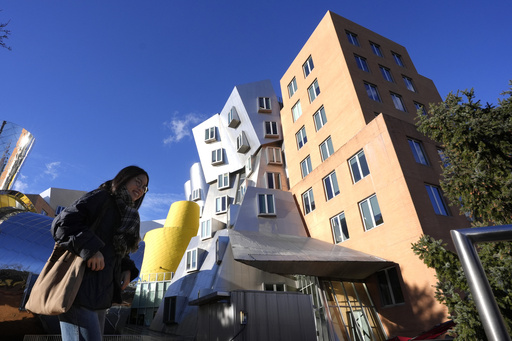
CONCORD, N.H. — An increasing number of American colleges and universities are encouraging international students to return to campus ahead of the inauguration of President-elect Donald Trump. These advisories stem from concerns that Trump may reinstate travel restrictions similar to those implemented during his first term.
Over a dozen institutions have issued warnings despite the uncertainty surrounding Trump’s future policies. For various schools, the spring semester starts before Trump takes office, necessitating that students be back on campus. However, for those whose residency in the U.S. relies on an academic visa, the guidance aims to mitigate risks by encouraging a return before January 20.
Reflecting on Trump’s past actions, he signed an executive order in January 2017 that prohibited entry into the United States for citizens from seven predominantly Muslim countries: Iraq, Syria, Iran, Sudan, Libya, Somalia, and Yemen. This ban resulted in travelers from these nations being denied boarding flights or facing detainment upon arrival at U.S. airports, impacting students, faculty, business travelers, tourists, and temporary visitors alike. Throughout his presidency, the banned countries list fluctuated, affecting a total of 15 nations. The U.S. State Department reported that over 40,000 visa applications were rejected due to this order, which President Joe Biden nullified upon his inauguration in 2021.
International students are feeling the repercussions of these policies, with over 1.1 million enrolled in U.S. higher education for the 2023-24 academic year, as noted by Open Doors, a data initiative partly supported by the U.S. State Department. A significant portion of these students hail from India and China, making up more than half of the total, while around 43,800 come from the countries previously affected by Trump’s travel bans. For instance, Jacky Li, a third-year environmental studies student at the University of California, Berkeley, plans to travel home to China on December 21 and return on January 16. Though his trip was meticulously planned prior to the university’s advisory, he has noticed escalating anxiety among international students. “There’s a fear that this kind of restriction will grow, especially given today’s geopolitical tensions,” Li stated. He encourages Trump to foster academic research rather than impede it, positing that if the U.S. champions educational freedom, it should facilitate rather than restrict cross-border communications.
Looking ahead, while Trump’s transition team has not publicly addressed questions regarding travel policies, he has previously indicated intentions to revive and potentially extend the travel ban, including new “ideological screenings” for non-citizens to exclude individuals he classifies as “dangerous lunatics, haters, bigots, and maniacs.” At a campaign event in Iowa in October 2023, he remarked on his commitment to barring entry from nations that threaten U.S. security, specifically citing Gaza, Syria, Somalia, Yemen, and Libya. Furthermore, Trump expressed plans to revoke the student visas of those he considers radical and anti-American in response to campus protests.
In light of these developments, schools have been proactive in advising international students who are planning to travel home during the winter break. They are encouraged to return to campus before Inauguration Day and to prepare for potential challenges at immigration checkpoints. Top-tier institutions like Harvard, Brown, and various Boston universities, including Northeastern University and the Massachusetts Institute of Technology, are included in this advisory, as well as other notable schools across the country. For example, Cornell University warned its students that a travel ban affecting the nations targeted during Trump’s prior administration could soon be enforced following the inauguration, with the possibility of new additions to the list, particularly concerning China and India. The university urged those from those countries to return by the start of the semester on January 21. While some institutions did not explicitly warn of impending bans, they still advised students to be vigilant and plan accordingly for any delays they may encounter.
